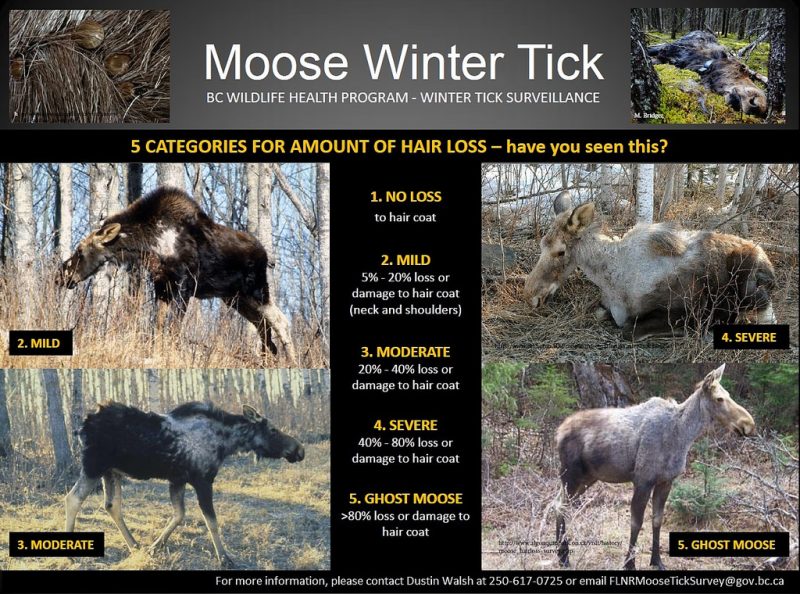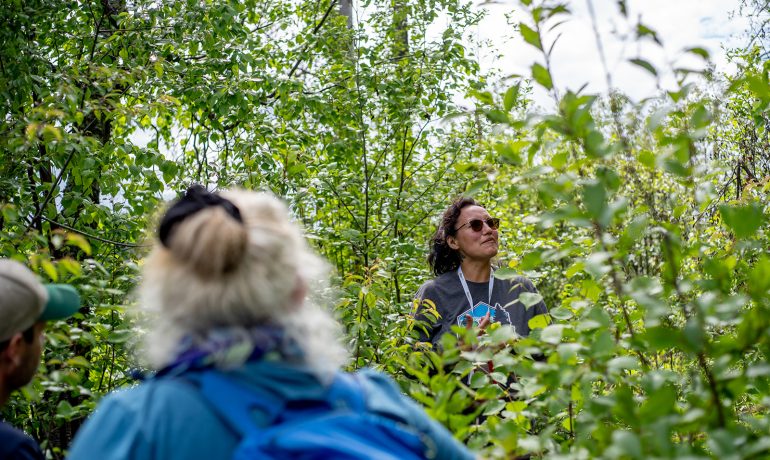The findings of the surveillance program will contribute to the Provincial Moose Research Program, which was initiated in 2013 to investigate factors influencing moose populations
The BC Wildlife Health Program is again asking for help assessing the effects of winter ticks on the province’s moose population as part of its annual moose winter tick surveillance program. The program relies on observations from wildlife professionals, wildlife enthusiasts and the general public to: monitor the number of animals with hair loss; assess the amount of hair loss on each animal; and estimate the overall prevalence and distribution of winter ticks. Tick infestations can, at times, result in severe behavioural and physiological changes and directly affect the survival rates of moose, especially in younger animals. Winter ticks can have a significant impact on moose populations when climate and habitat conditions promote high tick numbers. …The findings of the surveillance program will contribute to the Provincial Moose Research Program, which was initiated in 2013 to investigate factors influencing moose populations in British Columbia.
Related Post
As Published in Canadian Forest Industries Magazine, Pulp & Paper Magazine and Canadian Biomass Magazine
Jennifer Gunter’s Op Ed, “Community Forests: Rooted in Community,
Minister of Forests Mandated to Expand BC’s Community Forest Program
In the recently released mandate letter to the Minister



